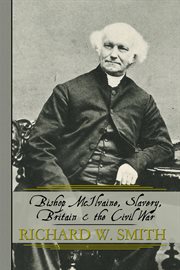Nonfiction
eBook
Details
PUBLISHED
Made available through hoopla
DESCRIPTION
1 online resource
ISBN/ISSN
LANGUAGE
NOTES
Bishop Charles P. McIlvaine was an important figure in nineteenth century America. As one of the leading evangelicals in the Protestant Episcopal Church, the Ohioan became the pivotal figure in the evangelical Episcopal-Anglican community. Famed as a preacher and speaker, his books and pamphlets were read by trans-Atlantic audience. His endeavors in the United Kingdom resulted in honorary degrees from Cambridge University and Oxford University. Aware of his reputation in England, the Lincoln Administration sent him to Britain in 1861. Working with Thurlow Weed, he sought to swing middle and upper class opinion into a pro-federal position. After six months abroad, his persuasive leadership induced the Federal Episcopal Convention to support the union war effort, which included Lincoln's emancipation policy. In this first biography of McIlvaine, Smith mined British and American sources never before utilized. The book reveals the bishop's complex persona. A rich and, at times, sorrowful family saga unfolds. As a reformer, he became an anti-slave advocate. This groundbreaking account develops the struggles encountered and the significance of the informal mission for federal policies. The political overtones in his friendship with the Prince of Wales are examined. Comfortable in any secular or military environment, McIlvaine's other wartime activities enabled him to report to Lincoln when necessary. In later years, he undertook length sojourns in England as he was busy with English and European religious questions. Dying in Italy, he was honored in Britain and America
Mode of access: World Wide Web







